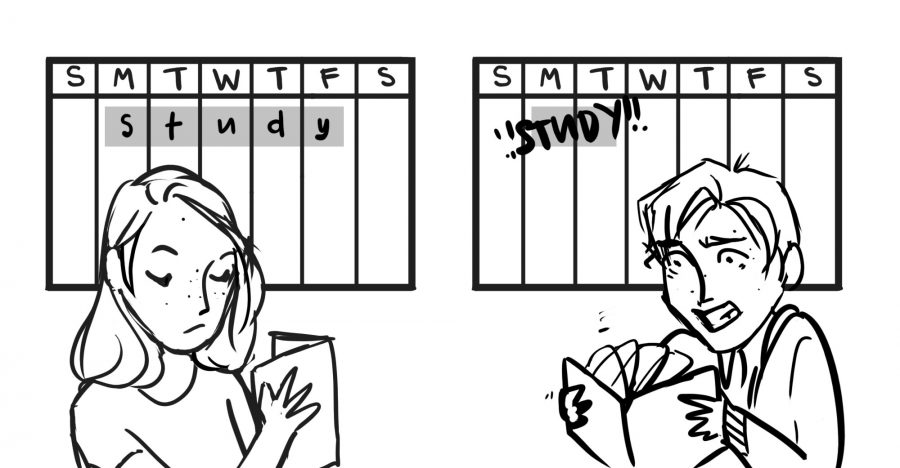Los Altos Should Bring Dead Week Back to Life
The week prior to final exams, or “dead week” as it has been referred to by high school and college students, often conjures up images of overworked students who are given yet another opportunity to slack off before their exams. However, this harmful misinterpretation increases the stress that surrounds finals week and hinders potential success for all types of students. Unfortunately, many schools, including Los Altos, have made the decision to limit this necessary opportunity.
The purpose of a dead week is to withhold any new material from being assigned to students the week before final exams in order to give them the time to study. Rather than giving students time to procrastinate, a dead week is supposed to facilitate independent study and allow students to synthesize information learned throughout the semester. It is intended to discourage cramming and give students the opportunity to find their own methods for studying. Instead of a week, Los Altos has two days prior to finals in which teachers are prohibited from introducing any new material, which limits students’ ability to exercise independence and free thinking. MVLA School District’s own mission statement says the district is “committed to creating a community of learners with the knowledge, skills and values necessary to combine personal success with meaningful contributions to our multicultural and global society,” which would be cultivated by the practice of a dead week. The district should enact a full dead week policy so that students can have adequate time to develop these values necessary for higher education. Many teachers are optimistic about the idea of a complete dead week and view it as an opportunity to make sure that all students are on the same page and able to organize their thoughts on material learned throughout the semester. “I think a dead week would require school-wide collaboration about what finals really mean because there are so many different interpretations of what a final is,” social studies teacher Marta Sakowicz said. “From a planning perspective, it would assure me that my students are ready for a final test or project.” Another common misconception around the idea of dead week is that students will not understand how to utilize an entire week to effectively study. Many assume certain students are going to procrastinate. Providing a dead week can be an opportunity to engage in inefficient study techniques during this week without assigned material, but should we really limit hardworking students in fear of leaving the procrastinators behind? A block of several days would allow students to retain information and would even limit the stressful culture that tends to surround final exams. If there was a week free of newly-introduced material preceding final exam week, teachers could show students how to benefit from a dead week during class time. Rather than continue the current pattern of reviewing material or providing a free work period in the days preceding finals, teachers could advise students. These lessons could include important study techniques to benefit each student’s ability to independently study the material after class, such as organization of notes or collaborative activities in which students could share techniques with each other. The school should place more emphasis on independent thinking, by enacting a longer dead week policy.


